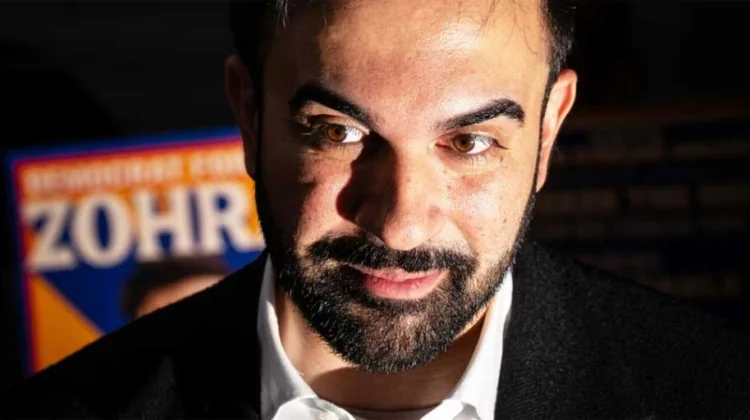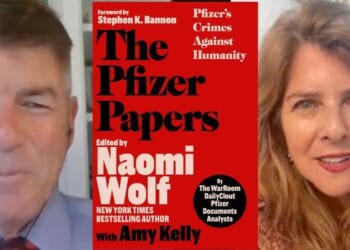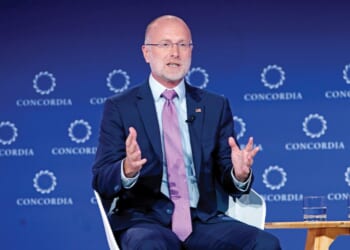
[Want even more content from FPM? Sign up for FPM+ to unlock exclusive series, virtual town-halls with our authors, and more—now for just $3.99/month. Click here to sign up.]
“My support for BDS,” the likely next mayor of New York City, Zohran Mamdani, has said, “is consistent with the core of my politics, which is nonviolence. And I think that it is a legitimate movement when you are seeking to find compliance with international law.” But is the “core” of his politics really nonviolence? It seems not.
The clearest indication of that is Mamdani’s repeated refusal to denounce the phrase “Globalize the Intifada.” The First and Second Intifadas were two violent uprisings of Palestinian Arabs against Israel, in which over a thousand Israelis were killed. To call for “globalizing the Intifada” is effectively to call for violence against Jews anywhere and everywhere they may be found.
The controversy began on June 17, 2025, when an interviewer, The Bulwark’s Tim Miller, said this to Mamdani: “We mentioned the Islamophobia. Obviously, we also have to be worried about the uptick in antisemitism. And there’s one thing in particular that frustrates me when talking with folks on the left. And that is like downplaying this conversation about how there obviously is antisemitism on the right, but there’s antisemitism coming from the left and coming from these protests. And one example I think of is this phrase, ‘Globalize the Intifada,’ which is a very popular phrase at protests on the left. And maybe some people say that phrase with good intent, but there are certainly some people who are saying that phrase with violent intent. So I wonder what you think about that, about the phrase ‘Globalize the Intifada’ and what we’ve seen as some antisemitism coming from the left-wing protesters.”
Mamdani responded by making it clear that he was not in favor of banning the phrase, which no one had actually called for doing, and got in a dig at Trump, claiming fancifully that he was banning the use of certain words”: “And I think that this is something that has to be the focus of the next mayoral administration, is not just talking about it, but tackling it. And these are the conversations that have informed our commitment around increasing funding for anti-hate crime programming by 800% in our Department of Community Safety. to the question of language that’s being used. I am someone who I would say am less comfortable with the idea of banning the use of certain words and that I think it is more evocative of a Trump-style approach to how to lead a country.”
Pressed further on what he actually thought of the call to “Globalize the Intifada,” Mamdani tried to downplay the meaning of the phrase: “And to me, ultimately, what I hear in so many is a desperate desire for equality and equal rights in standing up for Palestinian human rights. And I think what’s difficult also is that the very word has been used by the Holocaust Museum when translating the Warsaw ghetto uprising into Arabic, because it’s a word that means struggle.” Actually, jihad means “struggle”; intifada means “shaking off,” or “uprising.”
Mamdani continued by claiming victimhood status and further obfuscating the meaning of the phrase: “And as a Muslim man who grew up post-9/11, I’m all too familiar in the way in which Arabic words can be twisted, can be distorted, can be used to justify any kind of meaning. And I think that’s where it leaves me with a sense that what we need to do is focus on keeping Jewish New Yorkers safe. And the question of the permissibility of language is something that I haven’t ventured into.”
Here again, no one was talking about criminalizing the phrase or somehow rendering it impermissible to use. The question at hand was whether or not Mamdani disapproved of it, and he wouldn’t give a straight answer. He didn’t say straight out that he had no problem with the phrase, but he tried to soften its meaning and started raising irrelevant free speech issues.
Mamdani’s answer was one of his few political missteps during his carefully managed and slickly marketed mayoral campaign. His answer not only satisfied no one; it also widened concerns about what he really thought about Israel, Hamas, intifadas, and the wanton murders of Jewish civilians.
And so on NBC’s “Meet the Press” on Sunday, June 29, 2025, Mamdani was asked again about “Globalize the Intifada.” In his answer, he resorted to the same tactic he had tried with The Bulwark, pretending that he was being asked about restricting speech, rather than what he thought of killing Israeli civilians: “That’s not language that I use. The language that I use and the language that I will continue to use to lead this city is that which speaks clearly to my intent, which is an intent grounded in a belief in universal human rights. I don’t believe that the role of the mayor is to police speech in the manner.”
On July 15, 2025, Mamdani tried to defuse the controversy, meeting with a group of around 150 the leading businessmen in New York City, and promising them that he would discourage his followers from using the phrase “globalize the intifada.”
According to Kathryn Wylde, CEO of Partnership for New York, among the business titans was Dr. Albert Bourla, CEO of the pharmaceutical giant Pfizer and the son of Holocaust survivors, who challenged Mamdami “on characterizing Israel activities in Gaza as a genocide. It was tense. I don’t think everyone in the room was satisfied with his answer but he did show that he was empathetic to the concerns of Jewish people.”
That was all very well, but Mamdani had once again avoided condemning the phrase. All he agreed to do was discourage its use. While disputing that it was a call for violence, he continued to express his solidarity with the Palestinian jihad against Israel. His retreat from the phrase was merely tactical. It did not bode well for the future of the great city.














